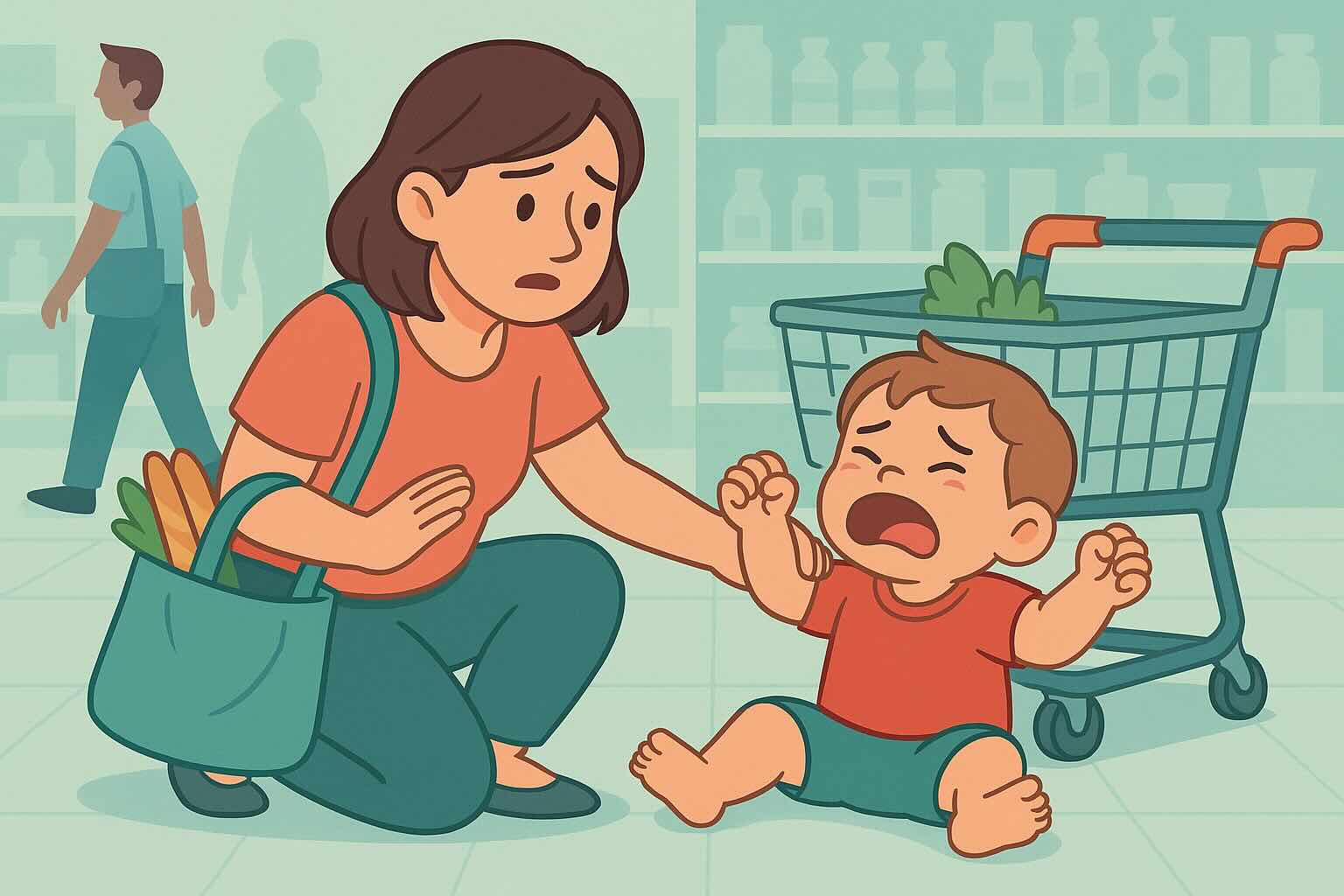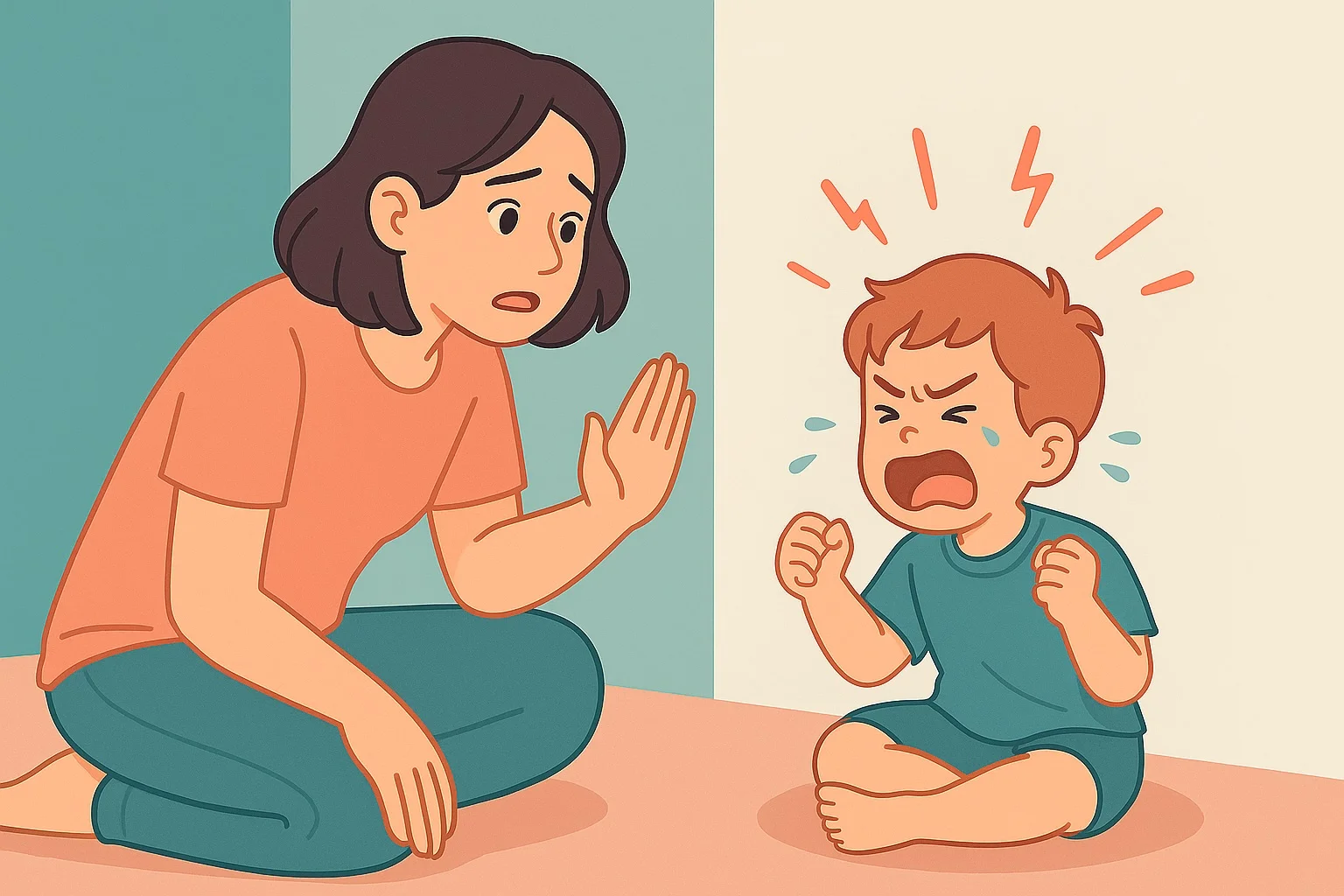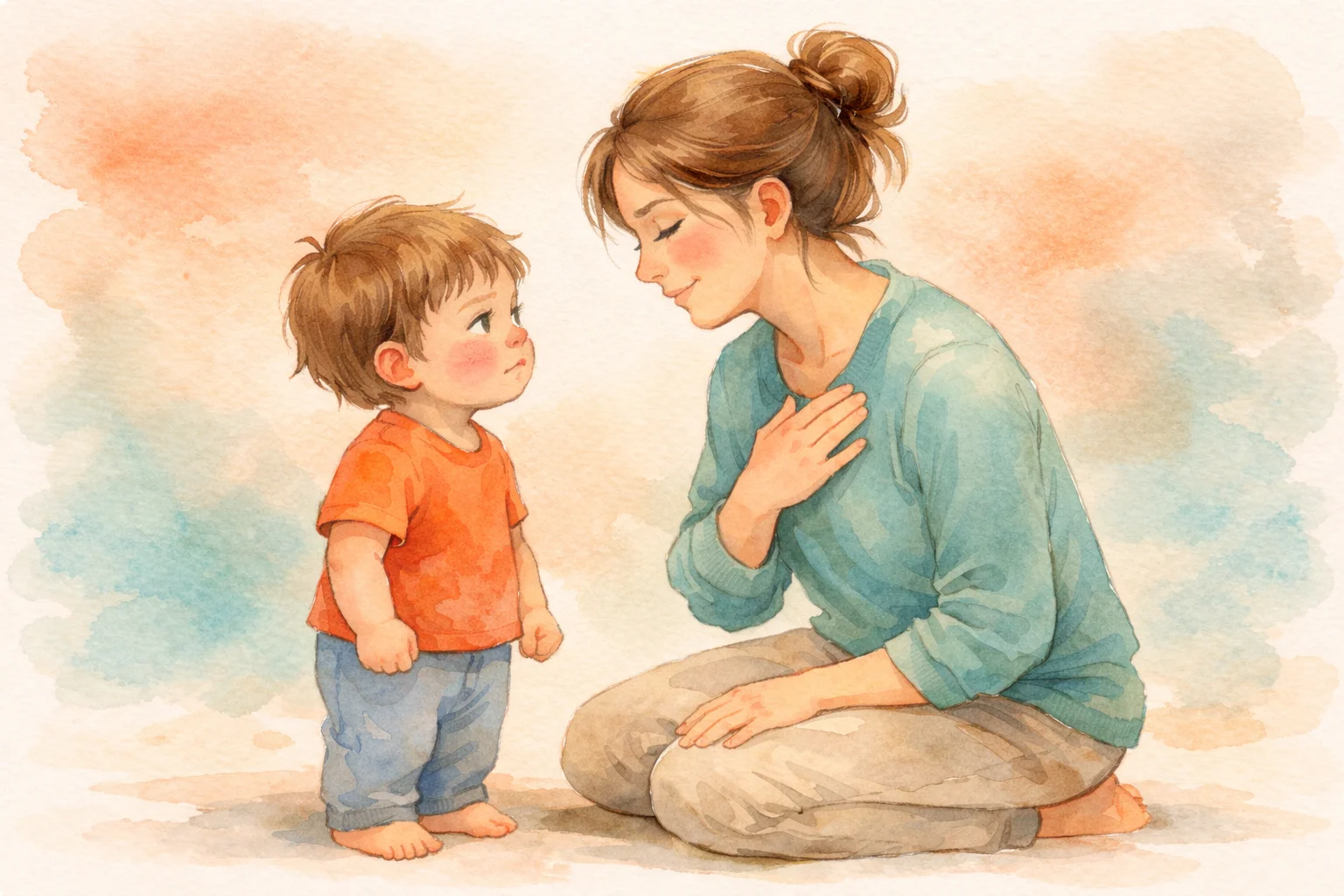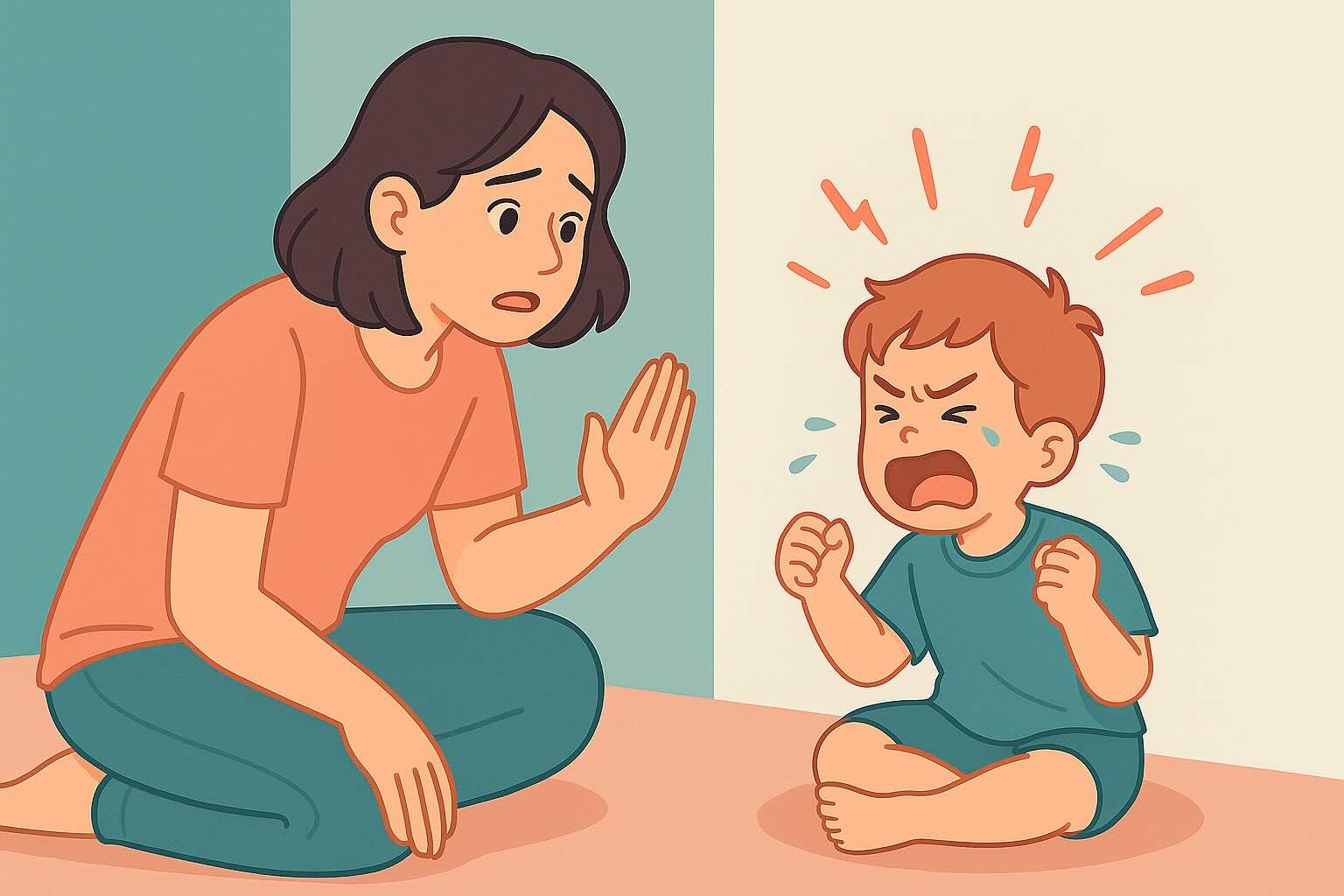6 Year Old Tantrums: Elementary Age Emotional Strategies


Welcome to the complex world of 6-year-old emotions, where your child navigates the demanding landscape of elementary school while still developing the emotional regulation skills they'll need for a lifetime. If you're reading this while your 6-year-old melts down over homework, recovers from a friendship conflict, or struggles with the overwhelming demands of their school day, you're witnessing the fascinating intersection of cognitive sophistication and emotional development.
Your 6-year-old is no longer the preschooler who had outbursts primarily about immediate wants and needs. Instead, they're grappling with academic expectations, complex social dynamics, and an expanding awareness of their place in the larger world. Understanding this developmental moment helps you respond with the sophistication their growing minds deserve while supporting their still-maturing emotional regulation system.
The 6-Year-Old Developmental Landscape
At 6, your child occupies a unique developmental position. Their cognitive abilities have expanded dramatically—they can think abstractly, understand complex rules, engage in hypothetical reasoning, and consider multiple perspectives simultaneously. Yet their emotional regulation system is still years away from adult sophistication, creating a child who can discuss complex feelings while still being overwhelmed by those same emotions.
The School-Age Cognitive Leap
Your 6-year-old's thinking abilities have taken a quantum leap forward. They can understand that actions have delayed consequences, that different people can have different opinions about the same situation, and that problems often have multiple solutions. This cognitive sophistication makes their emotional outbursts feel more frustrating to parents—clearly they "should" be able to think their way through emotional challenges.
However, cognitive understanding and emotional regulation are different brain systems that develop at different rates. Your child can intellectually understand that hitting when angry is wrong while still being overwhelmed by anger to the point where their thinking brain goes offline. This isn't willful defiance—it's normal brain development.
Academic and Social Pressures
The 6-year-old world is full of new expectations and pressures that didn't exist in their preschool years. They're expected to sit still for longer periods, follow complex multi-step instructions, manage materials and belongings, navigate peer relationships without constant adult mediation, and meet academic benchmarks that may or may not align with their individual developmental timeline.
These pressures can create emotional overwhelm that manifests as outbursts, even in children who previously seemed to have good emotional regulation. The cumulative stress of managing behavior all day at school often results in "after-school restraint collapse"—emotional meltdowns that happen as soon as they reach the safety of home.
Understanding 6-Year-Old Emotional Triggers
The triggers that overwhelm your 6-year-old reflect their expanding world and increasing responsibilities.
Academic Frustration and Learning Challenges
Many 6-year-olds experience their first real academic struggles as expectations become more demanding. Reading, writing, and math skills that seemed optional in preschool are now required competencies. Children who learn differently or at a different pace may experience intense frustration as they compare their abilities to peers or struggle to meet grade-level expectations.
These academic-related outbursts aren't about the specific task—they're about your child's developing sense of competence and their fear of being seen as inadequate. When your 6-year-old melts down over homework, they're often expressing deeper concerns about their ability to succeed in this new academic world.
Complex Social Dynamics
The 6-year-old social world is exponentially more complex than preschool friendships. Children are forming friendship preferences, creating in-groups and out-groups, dealing with social hierarchies, and navigating conflicts without constant adult intervention. Your child may come home devastated because their best friend played with someone else at recess or because they weren't invited to a birthday party.
These social triggers create genuine emotional distress because relationships are becoming increasingly important to your child's sense of self. They're beginning to understand social rejection and inclusion in ways they couldn't comprehend at younger ages.
Fairness and Justice Issues
Six-year-olds have a highly developed sense of fairness that can trigger intense emotional responses when they perceive injustice. This might be academic ("Why does Sarah get extra time but I don't?"), social ("It's not fair that I have to share but my brother doesn't"), or family-related ("You let me stay up later when I was 5").
Their outbursts about fairness reflect their growing understanding of rules, expectations, and social contracts. They're trying to make sense of a world that seems inconsistent and often unfair from their perspective.
Advanced Emotional Coaching for School-Age Children
Your 6-year-old's cognitive sophistication allows for much more advanced emotional coaching than was possible at younger ages.
Sophisticated Emotion Identification
Help your 6-year-old develop a nuanced emotional vocabulary that includes complex feelings like embarrassment, guilt, disappointment, pride, anxiety, and jealousy. The more precisely they can identify their emotions, the more effectively they can communicate and regulate them.
"I can see you're feeling something strong about what happened at school today. Let's see if we can figure out exactly what that emotion is. Are you feeling embarrassed because something happened in front of other kids? Or disappointed because something you hoped for didn't work out? Maybe frustrated because you couldn't do something the way you wanted to?"
Cause-and-Effect Emotional Analysis
Six-year-olds can begin to understand the complex chain of events that leads to emotional outbursts. Help them analyze: "What happened first that started these feelings? Then what happened that made them bigger? What was the moment when you felt like you couldn't handle it anymore?"
This analysis helps them recognize early warning signs and develop intervention strategies for future similar situations.
Multiple Perspective Taking
Use your child's cognitive abilities to help them understand different viewpoints during emotional challenges: "What do you think your teacher was thinking when that happened? What might your friend have been feeling? How do you think I felt when I saw you upset?"
This perspective-taking builds empathy while helping them understand that emotional situations are often more complex than they initially appear.
Practical Scripts for 6-Year-Old Outbursts
When Academic Struggles Create Frustration
"I can see how frustrated you are with this homework. It feels hard, and you're worried about getting it wrong. Learning new things is supposed to feel challenging—that's how your brain grows. You can feel frustrated about it being difficult, and we can work through it together step by step."
When Social Conflicts Trigger Emotional Overwhelm
"That situation with your friends sounds really confusing and hurtful. You were expecting one thing, and something completely different happened. Tell me more about what you were thinking and feeling when that was happening. What do you think might have been going on for your friends?"
When Perfectionism Creates Emotional Intensity
"You had a clear picture of how you wanted this project to turn out, and it looks different from your vision. That's disappointing when something doesn't match what we imagined. You put a lot of effort into this. What parts of it do you feel good about, even though it's not exactly what you planned?"
When School Stress Manifests as Home Outbursts
"You've had a big day managing all your school responsibilities. It takes a lot of energy to follow rules, learn new things, and get along with classmates all day. Now that you're home where it's safe, your body is letting out some of that stored-up stress. That's normal and okay."
Teaching School-Age Coping Strategies
Your 6-year-old can learn sophisticated self-regulation strategies that will serve them throughout their school years.
Advanced Problem-Solving Skills
Teach your 6-year-old a comprehensive problem-solving process:
- What exactly is the problem?
- How am I feeling about it, and why?
- What are all the possible solutions I can think of?
- What are the likely consequences of each solution?
- Which solution should I try first?
- How will I know if it's working?
- What will I do if it doesn't work?
This framework gives them a concrete process for approaching both emotional and practical challenges.
Emotional Regulation Toolbox
Help your child develop a personalized toolkit of regulation strategies:
- Deep breathing techniques (4-7-8 breathing, box breathing)
- Progressive muscle relaxation
- Mindfulness and body awareness exercises
- Physical release activities (jumping jacks, running, dancing)
- Creative expression (drawing feelings, journaling, music)
- Seeking support from trusted adults
- Taking appropriate breaks when overwhelmed
Self-Advocacy Skills
Teach your 6-year-old how to communicate their needs effectively to teachers, peers, and family members: "I'm feeling overwhelmed and need a quiet break," "I don't understand this assignment and need help," or "I'm having trouble with this friendship situation and need advice."
The School-Home Emotional Connection
Your 6-year-old's emotional life is significantly influenced by their school experiences, requiring coordination between home and school support systems.
After-School Emotional Processing
Many 6-year-olds need time to decompress from their school day before they can engage in homework, chores, or family activities. Build in transition time where your child can release the day's stress through physical activity, quiet time, or simply sharing about their experiences.
Communicating with Teachers
Develop a collaborative relationship with your child's teacher to support their emotional development. Share information about triggers, successful strategies, and patterns you notice at home. Teachers can provide valuable insights about your child's school behavior and social interactions.
Managing Homework Emotional Challenges
Homework often becomes a battleground for 6-year-olds who are already emotionally depleted from their school day. Create a supportive homework environment that prioritizes emotional regulation over task completion. If homework consistently triggers intense outbursts, communicate with teachers about appropriate expectations and modifications.
When 6-Year-Old Outbursts Signal Deeper Concerns
While occasional outbursts are normal for 6-year-olds, certain patterns may indicate your child needs additional support.
Learning Differences and Academic Struggles
If outbursts consistently relate to specific academic tasks, your child might be struggling with undiagnosed learning differences. Children with learning challenges often experience chronic stress from trying to keep up with expectations that don't match their learning style or pace.
Social Skills Challenges
Some 6-year-olds need explicit instruction in social skills that other children seem to learn naturally. If your child consistently struggles with peer relationships, reading social cues, or managing group dynamics, they might benefit from social skills training or evaluation.
Anxiety and Perfectionism
School-age children can develop anxiety around academic performance, social acceptance, or meeting expectations. If your child's outbursts consistently involve excessive worry, avoidance of challenges, or extreme distress about making mistakes, they might benefit from anxiety-specific interventions.
Attention and Executive Function Challenges
Some 6-year-olds struggle with the attention and organizational demands of school, leading to chronic stress and emotional outbursts. Difficulty with focus, working memory, organization, or impulse control may indicate ADHD or executive function challenges that benefit from specific support strategies.
Building Long-Term Emotional Resilience
Your response to your 6-year-old's emotional challenges contributes to their developing emotional resilience and mental health throughout their school years.
Growth Mindset About Emotions
Help your child understand that emotional regulation is a skill that improves with practice, just like reading or riding a bike. "You're learning how to handle big feelings. Each time you practice, you get a little better at it. Everyone learns this at their own pace."
Emotional Intelligence Integration
Connect your child's emotional experiences to broader life lessons: "The frustration you felt when math was hard is the same feeling that scientists have when they're trying to solve difficult problems. That frustrated feeling means your brain is working hard to learn something new."
Building Emotional Independence
Gradually shift from managing your child's emotions to coaching them in self-management. "What do you notice happening in your body when you start to feel overwhelmed? What strategies have worked for you before in similar situations? How will you know when you're ready to try again?"
The Family Impact of School-Age Emotional Development
Your 6-year-old's emotional growth affects your entire family and provides opportunities for everyone to develop emotional intelligence together.
Sibling Dynamics and Emotional Modeling
Six-year-olds are keen observers of family emotional patterns. They notice how different family members handle stress, disappointment, and conflict. Your responses to their outbursts become models for how they'll eventually handle others' emotional challenges.
Partner Coordination in School-Age Parenting
The complexity of school-age emotional challenges requires consistent coordination between caregivers. Regular communication about school issues, social dynamics, and emotional patterns helps ensure your child receives consistent support across different environments.
Balancing Individual and Family Needs
School-age children's emotional needs can sometimes dominate family dynamics, especially when outbursts are frequent or intense. Finding balance between supporting your child's emotional development and maintaining family functioning requires clear boundaries and expectations for all family members.
Related Resources for 6-Year-Old Development
For additional support with your 6-year-old's emotional and behavioral challenges, explore these complementary guides:
- 5 Year Old Tantrums: Expert Guide to Managing Emotional Outbursts - Understanding the progression from age 5
- 7 Year Old Tantrums: Advanced Strategies for Emotional Independence - Preparing for increased independence
- Starting School Guide - Supporting the academic and emotional transition
- Social Challenges Guide - Navigating complex peer relationships
- How to Handle Preschool Emotional Outbursts: Complete Parent Guide for Ages 3-7 - Broader developmental context
- Managing Power Struggles - Handling increased independence and strong opinions
- Building Cooperation Without Rewards - Fostering intrinsic motivation during school years
- Connection Before Correction Guide - Maintaining relationships during challenging moments
Embracing the School-Age Emotional Journey
Your 6-year-old's emotional outbursts reflect their courageous engagement with an increasingly complex world. While these challenges can feel overwhelming for both you and your child, they represent incredible opportunities for growth, learning, and connection.
By responding with sophisticated emotional coaching, maintaining appropriate boundaries, and supporting their developing independence, you're helping your child build the emotional intelligence that will serve them throughout their school years and beyond. The skills they're learning now—identifying complex emotions, solving problems collaboratively, understanding different perspectives, and recovering from emotional challenges—become the foundation for academic success, healthy relationships, and personal resilience.
Remember that the 6-year-old year is often particularly challenging as children adjust to the demands of formal schooling while their emotional regulation skills are still developing. Temporary increases in outbursts during transitions, academic challenges, or social difficulties are normal and expected.
Trust in your child's capacity to grow and learn from these emotional experiences. Every patient response you offer during their challenging moments, every problem-solving conversation you have afterward, and every coping skill you teach is an investment in their emotional future. You're not just managing outbursts—you're building an emotionally intelligent, resilient human being who will carry these skills into all their future academic, social, and personal challenges.
The goal isn't the elimination of all emotional challenges or perfect behavior in every situation. Instead, you're helping your 6-year-old develop the tools to navigate their expanding world with increasing confidence, self-awareness, and emotional resilience. These are the gifts that will serve them not just in elementary school, but throughout their entire educational journey and beyond.
Challenging Moments Support
Access step-by-step parenting strategies, quick tips, and age-specific guidance for difficult situations when you need it most.

24/7 AI Parenting Assistant
Get instant, personalized advice with expert-curated parenting knowledge. Chat with your AI coach anytime, anywhere.

Struggling with tantrums?
Get personalized coaching support available 24/7. Your parenting coach understands what you're going through.
Try RootWise Free →Free Tantrum Scripts
Help your toddler manage big emotions with these strategies and scripts.
Frequently Asked Questions
Need personalized support?
RootWise's AI coach can provide tailored strategies for your specific situation, available 24/7 when you need it most.
Learn More About AI Coaching →



